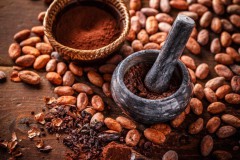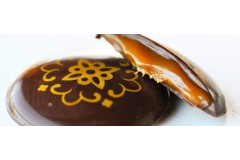The origin of the word spice would come from the Latin species literally meaning species. In the spoken versions of the Latin of the 3rd and 6th century it derived to define a substance, a commodity, a spice. It can be noted that the original word "species" is indeed a female name.
we note, and we define it as such, the first written appearance of the word spice in the song of the pilgrimage of Charlemagne to Jerusalemn. (12th century medium)
stanza xii, around 211:
four but fud li reis en jersalem la vile;
II and Li Duze per, La Chere Cumpania,
Demein Grant Barnage, because the Emperre is rich.
comment a MUSTER is from Sainte Marie:
li hume of the earth the clay la Latin,
because li language i venet de trestite la vile;
II i sell Lur Pailes, Lur Teiles and Lur Siries,
coste, canele, peivre, altres bones espices
e many bones herbs that Jo did not see say.
deus is a Core El Cel Form Make Justise!
Charlemagne evokes merchants who sell ginger (coste), cinnamon (canele), peppers (peivre) and other good spices (altres bones espices)
In the Middle Ages the word spice came to encompass any kind of preparation often sweets (jams, dragees) in which sometimes spices were. We even had a responsible person in charge of these sweets who were called the king's grocer. In the Roman de la Rose, a medieval poetic work we find trace of them: "and maintaining delictable hip that good mangier makes after table"
Note again that the word spice is also feminine at that time. In the different texts of the Renaissance the word spice, which has the same contemporary definition, is also used in the feminine.
Despite attempts to research in -depth we could have found a plausible explanation in the past for the use of the masculine in place of the feminine to determine the spice. But no, no trace.
Max Daumin



